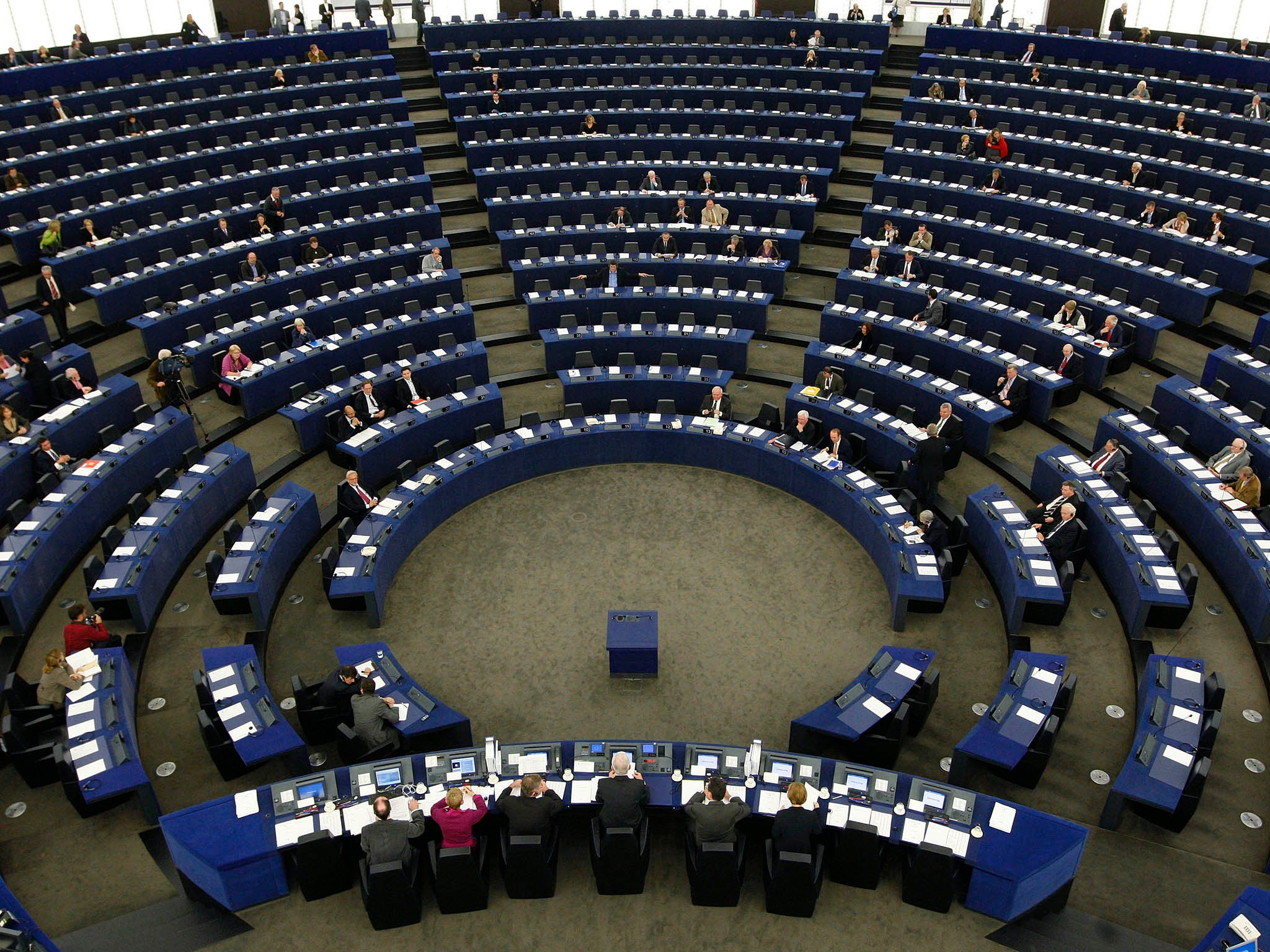European Parliament sets Sunday deadline for approving Brexit deal this year
Leaders of political groups say they will not be rushed into approving a text

The European Parliament will not meet to ratify a Brexit trade deal this year unless one is signed before Sunday, the leaders of its main political groups have said.
The new red line means Britain is expected to face a no-deal exit from the single market if nothing has been agreed by the close of the weekend – causing significant economic disruption.
In a joint statement, the parliament’s conference of presidents said they stood “ready to organise an extraordinary plenary session towards the end of December" but only if "an agreement is reached by midnight on Sunday 21st”.
They made the comments after a meeting with EU chief negotiator Michel Barnier in Brussels on Thursday morning, in which he is said to have told them a deal was possible by Friday.
Dacian Cioloș, leader of the parliament's liberal Renew group and an ally of Emmanuel Macron, said the deadline was necessary because "uncertainty hanging over citizens and businesses as a result of UK choices" was becoming "intolerable".
Manfred Weber, chair of the parliament’s largest group, the centre-right European People’s Party, said: "After [Sunday] we cannot reasonably scrutinise the deal before the end of the year. The agreement is too important to rush through Parliament.
"We owe it to the people and businesses in our constituencies who will be heavily affected by Brexit, to scrutinise the deal appropriately. After Sunday we don't believe this would still be possible."
Iratxe Garcia Perez, leader of the centre-left socialist group, said: "We will not be rushed into a consent vote of the Brexit deal before the end of the year if we don’t have access to the text by Sunday."
The warning by the Parliament raises the possibility that the UK could be hit by a limited period of trading on no-deal terms from the beginning of January, even if an agreement is signed before the end of the year.
While the European Union and UK both have some powers for “provisional” application of deals without the consent of their parliaments, it is not clear whether these would help prevent a no-deal in this case.
Mr Barnier is understood to have told ambassadors and MEPs in separate private meetings that even the reduced length of the provisional application process means there could well be a short no-deal in January even if it is used.
The European Commission president Ursula von der Leyen has also promised the Parliament that she would not use the procedure to bypass MEPs. The joint statement by the parliamentary group leaders recalls this, noting that Ms Von der Leyen said provisional application could take place “only once the European Parliament has given its consent”.
The Independent additionally understands that the European Council’s legal service believes that provisional application would not be fast enough to prevent a no-deal on 1 January if the process was set in motion after this week.
Mr Barnier struck an upbeat tone on the possibility of a free trade agreement on Thursday, saying there had been “good progress" but that “stumbling blocks remain”.
He said talks were in their "final stretch", adding: “We will only sign a deal protecting EU interests and principles.”
The chief negotiator reporters told presidents that a deal was possible by Friday.
But UK sources were significantly less upbeat, stressing that the two sides were still very far apart in key areas. EU member state diplomats believe a deal is possible but warn that the path to one is narrow.
Back in Westminster, Downing Street would not be drawn on the European Parliament’s timetable. The prime minister’s spokesperson said the House of Commons would not be recalled on Christmas Day or the Boxing Day Bank Holiday for its own ratification procedures, but did no rule out weekend sittings to approve the agreement.
Join our commenting forum
Join thought-provoking conversations, follow other Independent readers and see their replies
Comments
Bookmark popover
Removed from bookmarks